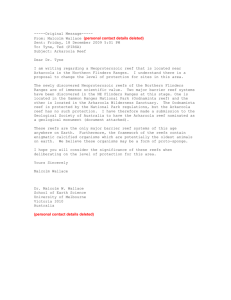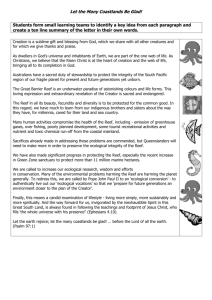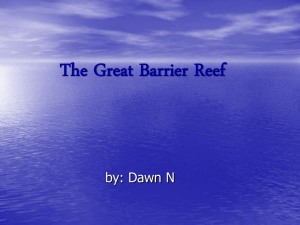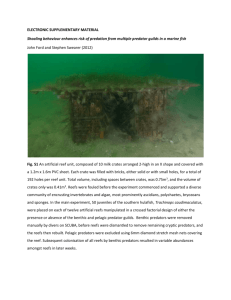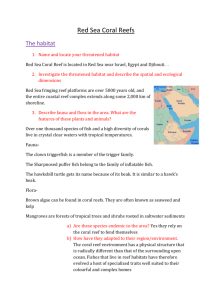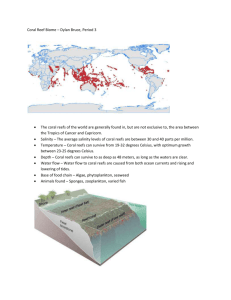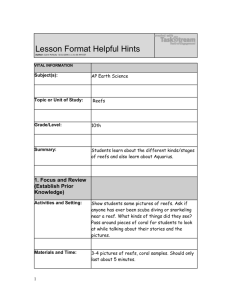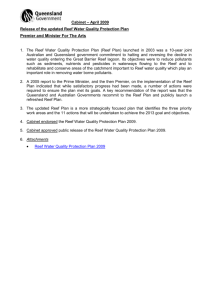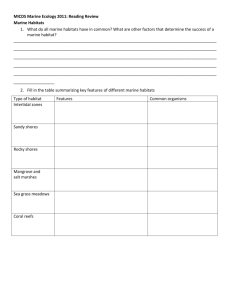Reef Conservation Project
advertisement
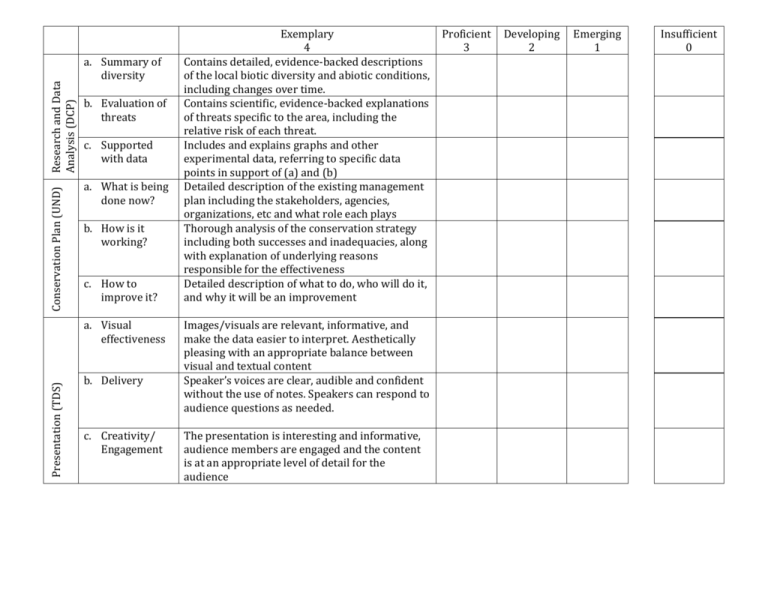
Research and Data Analysis (DCP) Conservation Plan (UND) a. Summary of diversity b. Evaluation of threats c. Supported with data a. What is being done now? b. How is it working? c. How to improve it? Presentation (TDS) a. Visual effectiveness b. Delivery c. Creativity/ Engagement Exemplary 4 Contains detailed, evidence-backed descriptions of the local biotic diversity and abiotic conditions, including changes over time. Contains scientific, evidence-backed explanations of threats specific to the area, including the relative risk of each threat. Includes and explains graphs and other experimental data, referring to specific data points in support of (a) and (b) Detailed description of the existing management plan including the stakeholders, agencies, organizations, etc and what role each plays Thorough analysis of the conservation strategy including both successes and inadequacies, along with explanation of underlying reasons responsible for the effectiveness Detailed description of what to do, who will do it, and why it will be an improvement Images/visuals are relevant, informative, and make the data easier to interpret. Aesthetically pleasing with an appropriate balance between visual and textual content Speaker’s voices are clear, audible and confident without the use of notes. Speakers can respond to audience questions as needed. The presentation is interesting and informative, audience members are engaged and the content is at an appropriate level of detail for the audience Proficient 3 Developing 2 Emerging 1 Insufficient 0 You and your teammates have been tasked with developing and presenting a proposal for a management plan to help preserve and/or encourage recovery of a particular Philippine reef (to be chosen in class). Your presentation should include two main components: 1) Research and Data Analysis a. Diversity - Describe the biotic and abiotic conditions of the reef. What species diversity is present? How does this compare to other reefs worldwide? Have there been major changes in the diversity/health of the reef over time? b. Threats – What threats does the reef face? This should be more specific than the general threats to reefs worldwide. Which threats are most relevant to this particular area and why? c. Data – You need to support parts (a) and (b) with relevant data. Use the resources from the online lab in class, the links below, or your impressive google skills. Simply including graphs or images isn’t enough, be sure to describe how the data/images relate to either (a) or (b) 2) Conservation Plan a. Current – What is being done now in terms of reef management? Who is involved and how? Many reefs in the Philippines have marine protected areas (MPAs) or other conservation measures in place but estimates suggest they are very ineffective. Research and summarize the current conservation status. Note: If your current location has no plan (unlikely) find an example of a successful management plan elsewhere in the Philippines to describe (e.g. Apo reef) and critically examine it in (b) b. What aspects of the management plan are working? What aspects are ineffective? What factors are important for a successful management plan? c. Based off of (a) and (b) make a new and improved proposal for your reef Background and Monitoring Data http://en.wikipedia.org/wiki/Southeast_Asian_coral_reefs http://www.noaawatch.gov/themes/coral_bleaching.php http://insights.wri.org/news/2012/03/protecting-worlds-coral-reefs-through-mapping http://www.wri.org/publication/reefs-at-risk-revisited http://coralreefwatch.noaa.gov/satellite/current/products_vs.html Conservation http://www.lmmanetwork.org/files/annual_reports/LMMA2010AR.pdf http://www.lmmanetwork.org/home http://innri.unuftp.is/pdf/Marine%20Protected%20Areas.pdf Virtual Monitoring Sites in the Philippines (more data) (http://coralreefwatch.noaa.gov/satellite/vs/docs/list_vs_group_latlon_201103.html) scroll down to get to the Philippines section Apo Reef Batanes Bohol Sea Bolinao El Nido Polillo Islands Tawitawi Tubbataha Visayan Sea
